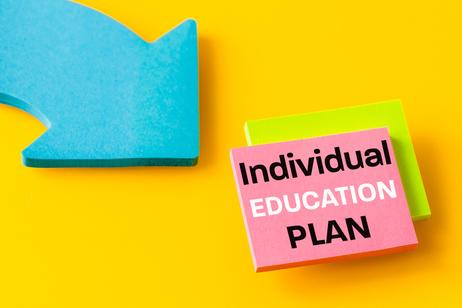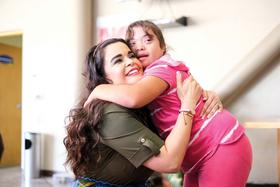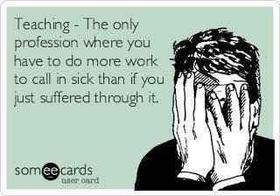Individualized Education Programs (IEPs) have been a game-changer in education, offering tailored support to students with a wide range of special needs. From students with learning disabilities to those struggling with behavior, IEPs have played a pivotal role in ensuring every child receives a quality education. This guide will demystify IEPs and explore how they benefit students, especially those facing behavioral challenges.
Understanding the Origin of IEPs
The roots of IEPs can be traced back to the Education for All Handicapped Children Act, now known as the Individuals with Disabilities Education Act (IDEA), signed into law in 1975. This groundbreaking legislation mandated that students with disabilities, including those with behavioral challenges, have the right to a free and appropriate public education tailored to their unique needs. The development of IEPs was a critical component of this law, ensuring that students received individualized support plans to help them succeed academically and behaviorally.
In special education, there's too much emphasis on the deficit and not enough on the strength.
Temple Grandin
The IEP Basics: What Parents Need to Know
For parents, understanding the basics of IEPs is essential. An IEP is a legally binding document that outlines a student's unique learning and support needs and the services and accommodations they will receive. It's a roadmap to success, customized to each child. The IEP process typically involves assessment, goal setting, and regular review meetings.
This video explains what an IEP is.
Incorporating Behavior Support in IEPs
One key aspect of IEPs is the inclusion of Behavioral Intervention Plans (BIPs) for students struggling with behavior. These plans are designed to identify the root causes of behavior issues and provide targeted strategies and interventions to address them positively. Parents and teachers collaborate closely to develop and implement effective BIPs, ensuring the student's behavior aligns with the classroom environment.
Success Stories: Transforming Lives with IEPs
Real-life success stories illustrate the profound impact of IEPs, especially for students with behavior challenges. Parents and teachers share their experiences, demonstrating how well-designed IEPs have transformed students' lives, boosting their confidence and academic performance. These stories offer hope and inspiration to those navigating the IEP journey.
No Child Left Behind requires states and school districts to ensure that all students are learning and are reaching their highest potential. Special education students should not be left out of these accountability mechanisms.
Dianne Feinstein
The Legal Side of IEPs: Know Your Rights
Understanding the legal aspects of IEPs is crucial for parents. IDEA safeguards the rights of students and parents in the IEP process, ensuring that children with disabilities receive an equitable education. This section explores these legal protections, emphasizing the importance of advocating for your child's needs.
The Role of Special Education Teachers in IEPs
Special education teachers play a pivotal role in IEP development and implementation. Aspiring educators can gain valuable insights into the responsibilities and expertise required in this role. This section highlights the collaboration between teachers, parents, and specialists in crafting effective IEPs.
This video explains how an IEP works.
IEPs and Inclusion: Fostering Positive Environments
Inclusive education is a growing trend; IEPs are integral to this model. Learn how IEPs facilitate the inclusion of students with behavior challenges in mainstream classrooms. Discover strategies and best practices for creating a positive and supportive environment for all students.
Undoubtedly, there are kids with intellectual deficiencies or neurological problems. However, many kids shunted into special education classes are deficient only in a willingness to conform to the school pattern. They are honest, brave kids who say, "I just won't take that, and I don't believe in what you're doing." If you give them an alternative to the usual classroom, they break free of a lot of inhibitions and bad associations, and they begin to learn.
Seymour Papert
Leveraging Technology for Behavior Support
Technology can be a powerful tool in IEPs, particularly for tracking and addressing behavior issues. Explore apps, software, and online resources that aid in behavior monitoring and intervention. Discover how technology can enhance the IEP process.
IEPs: Preparing Students for Life Beyond the Classroom
IEPs aren't just about academic success; they also prepare students for life beyond school. Learn how well-crafted IEPs equip behaviorally challenged students with the skills they need for adulthood, vocational training, and independent living.
Conclusion: Empowering Students Through IEPs
In conclusion, IEPs are a lifeline for students with behavioral challenges and other special needs. Parents and educators can collaborate to create individualized plans that set students on a path to success. By demystifying IEPs and embracing their potential, we empower every child to reach their full potential.
Questions? Contact us on Facebook. @publicschoolreview
#IEP #SpecialEducation #BehavioralSupport #EducationPlan #ParentingTips #TeacherTraining #IEPRights #SpecialEducationLaw #ParentAdvocacy #IEPLegalRights #InclusiveEducation #BehavioralInclusion #IEPInclusion














